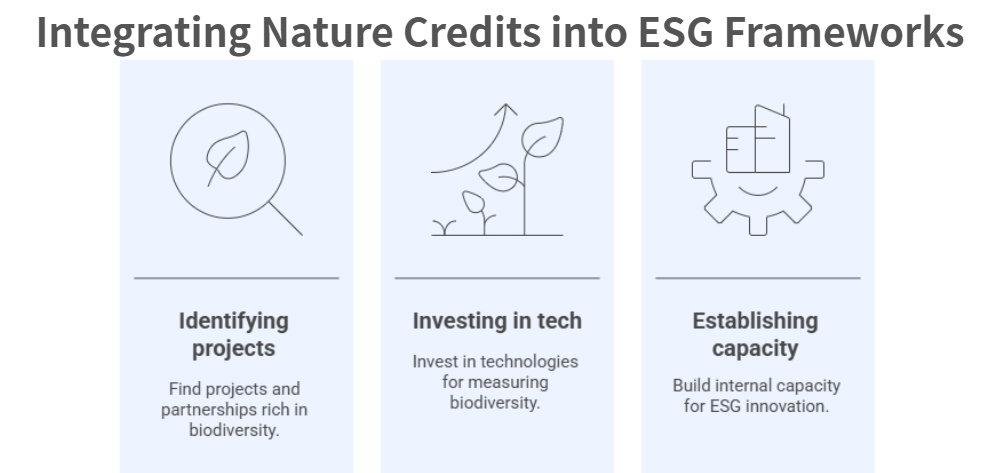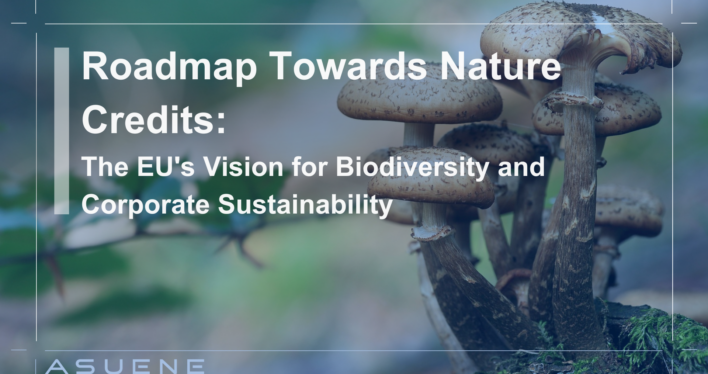- Article Summary
-
Overview
The European Commission has recently unveiled its ambitious “Roadmap Towards Nature Credits,” marking a significant step forward in global biodiversity conservation and corporate sustainability strategies. This initiative addresses the urgent need to combat biodiversity loss, complementing existing climate strategies such as carbon credits. Nature Credits represent measurable units reflecting positive biodiversity impacts from conservation projects, restoration initiatives, or sustainable land-use practices. With biodiversity declining at alarming rates globally, this EU-led initiative presents a timely framework for corporate engagement and responsible investment in environmental stewardship.
Nature Credits: Understanding the EU’s New Framework
The EU’s Roadmap introduces Nature Credits as an innovative financial instrument designed to incentivize biodiversity conservation. Unlike traditional carbon offsets focused solely on emissions reduction, Nature Credits emphasize holistic environmental benefits, including ecosystem restoration, habitat conservation, and sustainable resource management.
Key components outlined by the EU include:
- Standardized methodologies for measuring biodiversity gains.
- Robust verification processes ensuring transparency and integrity.
- Integration with existing ESG reporting frameworks.
A projection of the Nature Credits market illustrates substantial growth from 2025 to 2030, driven by regulatory demand and corporate sustainability targets. Companies can leverage this growth trajectory to proactively align with EU sustainability mandates.
| Feature | Nature Credits | Carbon Credits | Biodiversity Offsets |
|---|---|---|---|
| Primary Goal | Biodiversity conservation and ecosystem restoration | Reducing greenhouse gas emissions | Compensating biodiversity loss through equivalent restoration |
| Measurement Metrics | Biodiversity indicators, habitat quality | Tons of CO2 equivalents reduced or sequestered | Area and biodiversity equivalence metrics |
| Market Maturity | Emerging, rapidly growing (2025 onwards) | Mature, established market | Developing, varies by region |
| Regulatory Environment | Strong EU regulatory push | Well-established global regulatory frameworks | Varied regulations depending on jurisdiction |
| Corporate Integration | Integrated into broader ESG reporting standards | Primarily climate-focused ESG strategies | Project-specific, compliance-oriented |
Regulatory Implications: What Corporations Need to Know
The EU’s Nature Credits roadmap introduces regulatory expectations that corporations operating within or dealing with the EU must understand clearly:
- Mandatory biodiversity impact disclosures under forthcoming regulations.
- Strict reporting standards and compliance verification.
- Potential financial penalties for non-compliance.
This framework aligns closely with broader EU sustainability initiatives, such as the Corporate Sustainability Reporting Directive (CSRD). Meanwhile, the U.S. SEC has similarly proposed enhanced ESG disclosure rules, reflecting increasing global convergence on biodiversity accountability.
Corporations should prepare to:
- Update ESG strategies to include biodiversity benchmarks.
- Engage with accredited third-party verifiers.
- Regularly report biodiversity outcomes and investments to stakeholders.

Business Case: Opportunities and Challenges with Nature Credits
Adopting Nature Credits presents numerous opportunities. Companies that successfully integrate these credits into their strategies can expect enhanced corporate reputation and strengthened trust among stakeholders. Furthermore, the use of Nature Credits significantly attracts ESG-conscious investors seeking responsible and impactful investments. Long-term financial returns are another compelling advantage, as nature-positive investments often yield substantial benefits in the long run.
However, businesses must also carefully navigate potential challenges. The market volatility and evolving regulatory standards pose significant risks that demand strategic foresight. Accurately measuring biodiversity outcomes can be complex and resource-intensive, requiring robust systems and expertise. Additionally, the costs related to verification and compliance can be substantial, potentially impacting the overall financial viability of adopting Nature Credits.
Early movers in biodiversity credits are already realizing comparative advantages. Analysis indicates potentially significant returns on investment (ROI) compared to traditional ESG initiatives, driven by consumer preference for genuinely sustainable brands.
Looking Ahead: Preparing for the EU’s Nature Credits Transition
Corporate leaders should begin strategically integrating Nature Credits into ESG frameworks immediately.

Businesses pioneering these practices, including major European and multinational firms, are setting benchmarks in biodiversity reporting, thereby shaping global ESG leadership standards. With other major economies like the U.S. closely monitoring the EU’s approach, Nature Credits could soon influence international sustainability frameworks extensively.
Conclusion
The EU’s “Roadmap Towards Nature Credits” represents a transformative approach to biodiversity and corporate responsibility, underscoring biodiversity’s critical role in ESG strategies. Corporations proactively adopting Nature Credits will not only align with regulatory demands but also establish themselves as global sustainability leaders. As biodiversity becomes increasingly central to investor and stakeholder decisions, strategic investment in Nature Credits now will undoubtedly position companies advantageously for the future.
Why Work with ASUENE Inc.?
Asuene is a key player in carbon accounting, offering a comprehensive platform that measures, reduces, and reports emissions, including Scope 1-3. Asuene serves over 10,000 clients worldwide, providing an all-in-one solution that integrates GHG accounting, ESG supply chain management, a Carbon Credit exchange platform, and third-party verification.
ASUENE supports companies in achieving net-zero goals through advanced technology, consulting services, and an extensive network.


